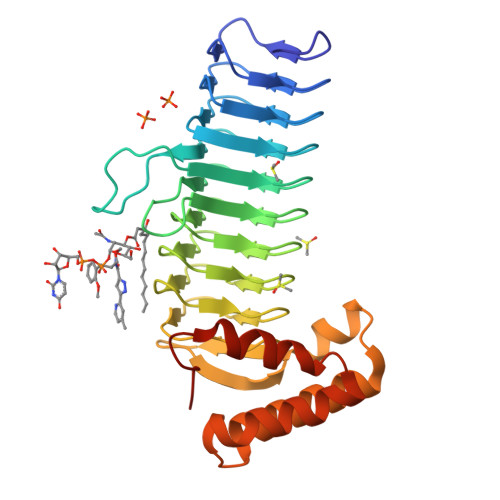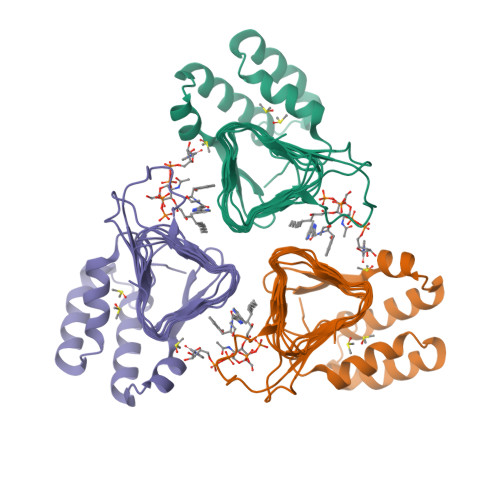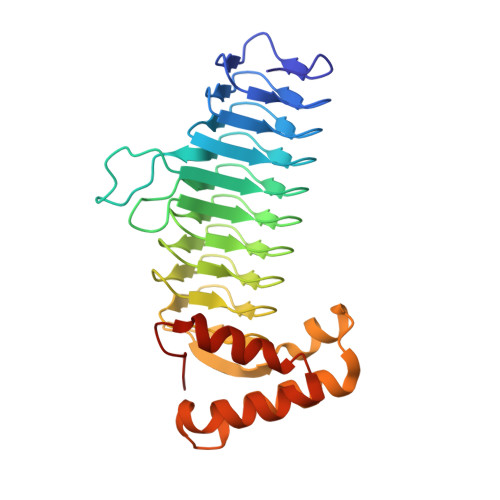Two Distinct Mechanisms of Inhibition of LpxA Acyltransferase Essential for Lipopolysaccharide Biosynthesis.
Han, W., Ma, X., Balibar, C.J., Baxter Rath, C.M., Benton, B., Bermingham, A., Casey, F., Chie-Leon, B., Cho, M.K., Frank, A.O., Frommlet, A., Ho, C.M., Lee, P.S., Li, M., Lingel, A., Ma, S., Merritt, H., Ornelas, E., De Pascale, G., Prathapam, R., Prosen, K.R., Rasper, D., Ruzin, A., Sawyer, W.S., Shaul, J., Shen, X., Shia, S., Steffek, M., Subramanian, S., Vo, J., Wang, F., Wartchow, C., Uehara, T.(2020) J Am Chem Soc 142: 4445-4455
- PubMed: 32064871
- DOI: https://doi.org/10.1021/jacs.9b13530
- Primary Citation of Related Structures:
6P9P, 6P9Q, 6P9R, 6P9S, 6P9T - PubMed Abstract:
The lipopolysaccharide biosynthesis pathway is considered an attractive drug target against the rising threat of multi-drug-resistant Gram-negative bacteria. Here, we report two novel small-molecule inhibitors (compounds 1 and 2 ) of the acyltransferase LpxA, the first enzyme in the lipopolysaccharide biosynthesis pathway. We show genetically that the antibacterial activities of the compounds against efflux-deficient Escherichia coli are mediated by LpxA inhibition. Consistently, the compounds inhibited the LpxA enzymatic reaction in vitro. Intriguingly, using biochemical, biophysical, and structural characterization, we reveal two distinct mechanisms of LpxA inhibition; compound 1 is a substrate-competitive inhibitor targeting apo LpxA, and compound 2 is an uncompetitive inhibitor targeting the LpxA/product complex. Compound 2 exhibited more favorable biological and physicochemical properties than compound 1 and was optimized using structural information to achieve improved antibacterial activity against wild-type E. coli . These results show that LpxA is a promising antibacterial target and imply the advantages of targeting enzyme/product complexes in drug discovery.
Organizational Affiliation:
Novartis Institutes for BioMedical Research, Emeryville, California 94608, United States.





















